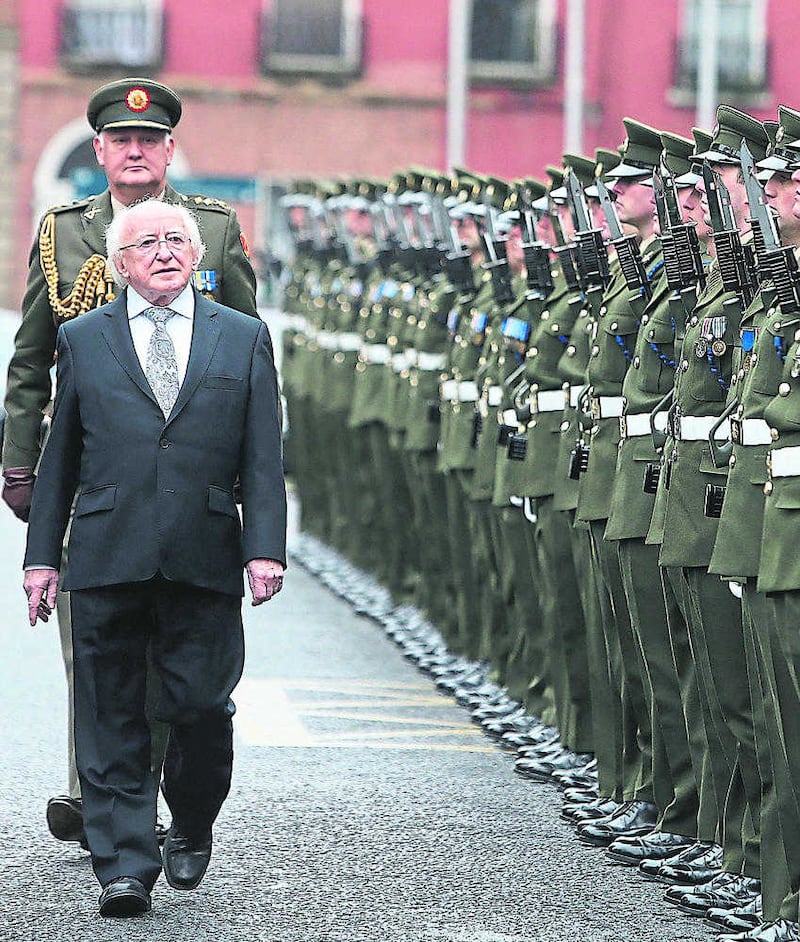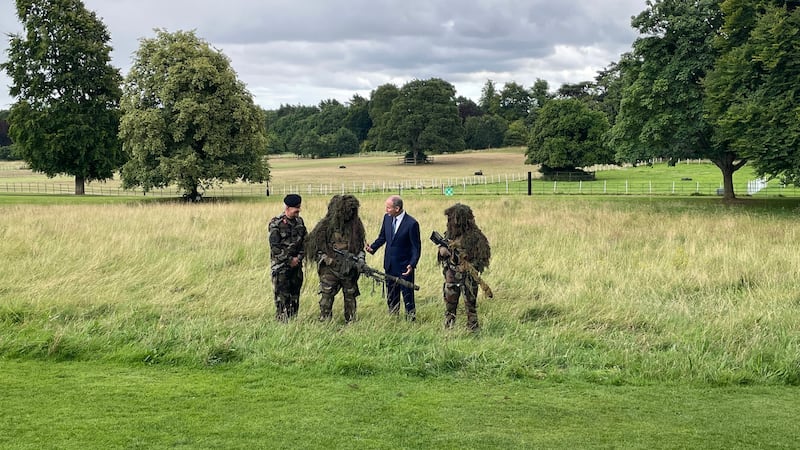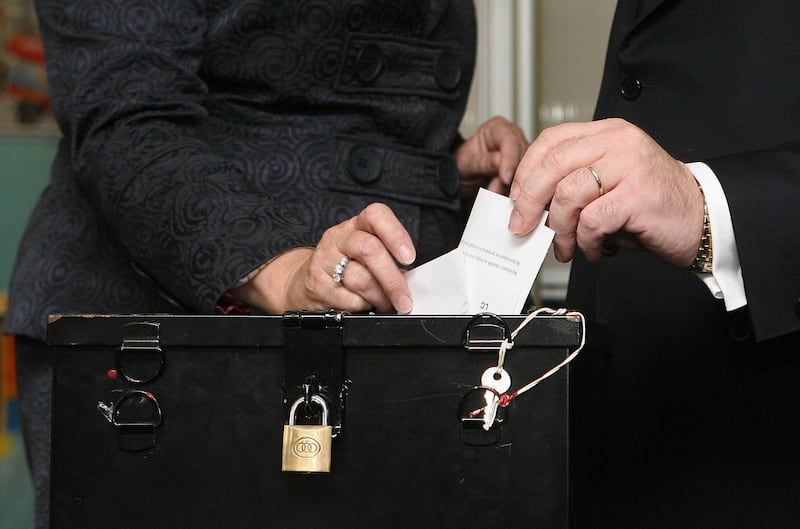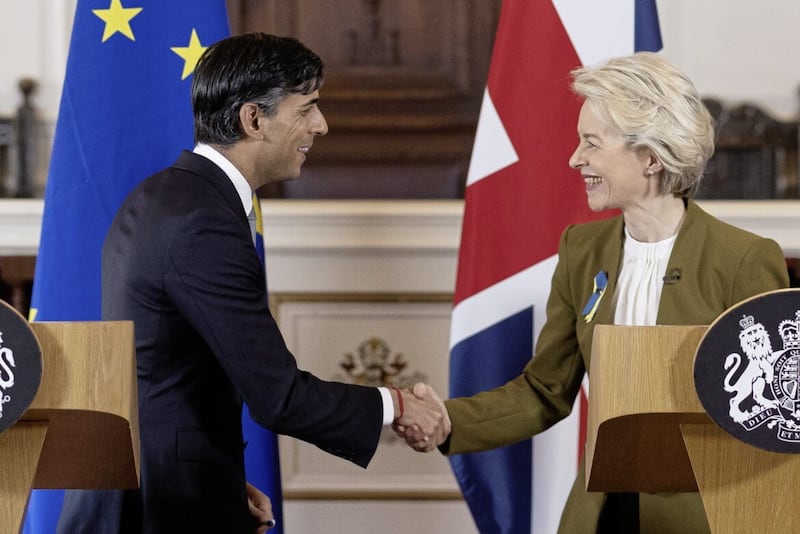Is it worth fighting wars for the prospect of a united Ireland? No, not a war like the one the IRA lost.
Is it worth fighting for the USA and the EU against Russia, China or various Arab and African states in the hope of achieving Irish unity?
An odd question, you say, but one which is increasingly relevant because the Dublin government is currently preparing legislation to change the rules allowing Ireland to go to war.
Until now Irish military involvement has required United Nations approval, but the proposed new law will allow the government (with Dáil approval) to send its forces to fight anywhere in the world.
Quite right too, you say, we can’t have others telling us what to do. That’s exactly the problem. The Dublin government in heavily embedded in the EU, which is far from neutral and is pretty good at telling member states what to do. (It syphoned £60 million from Irish taxpayers as part of its bailout of the Irish economy in 2010.)
- Security forum chair says neutrality ‘not necessary’ for Ireland’s reputationOpens in new window
- Patrick Murphy: President Michael D Higgins is right – we can't be neutral about Irish neutralityOpens in new window
- Patricia MacBride: Ireland’s neutrality can’t be bought with a state visitOpens in new window
Despite this, nationalists (particularly in the north) see the EU as the promised land which, with US backing, will bring about a united Ireland. Their belief is based on the Windsor Framework, which is supported by the EU and the US. It has economically distanced the north from Britain through the retention of some EU laws here.
It is becoming clear that the price of EU support for the Irish government over Brexit is the abandonment of Irish neutrality
However, it is becoming clear that the price of EU support for the Irish government over Brexit is the abandonment of Irish neutrality. The bill for the Windsor Framework is now being paid in the Dáil, in the form of a legislative bill which allows Ireland to go to war without UN approval.
(Remember that the tradition of presenting shamrock in the White House was begun by the Irish ambassador to Washington in 1952, to make amends for Irish neutrality during World War II.)
There is widespread support for retaining neutrality. President Higgins has said that Ireland is “drifting towards military alliances” and that “we don’t have to bury ourselves in other people’s agendas”.

However, Ireland is already doing this. Leo Varadkar has said the Ukraine war “is our war too”. As well as providing troops to train Ukrainian forces in mine clearance, combat medicine and engineering, Irish personnel are providing instruction in basic weapons skills, including rifle training.
Micheál Martin has said that participating in the EU mission would only be in “non-lethal” areas (presumably including non-lethal weapons training: “Today we are going to learn to shoot over the enemy’s heads”).

You might reasonably argue that Ireland should stand with Ukraine, but you can’t do that and claim to be neutral.
Oddly (or maybe not) that is Sinn Féin’s position. The party recently claimed “Ireland remains steadfast in support for Ukraine”, while claiming to support neutrality. It has also abandoned its 2020 manifesto pledge to withdraw Ireland from its military involvement with the EU.
The Irish government’s proposed abandonment of neutrality will break two of its earlier promises.

In 2001, Irish voters rejected the EU’s Nice Treaty in a referendum, fearful of its implications for Irish neutrality. A second referendum was held on the basis that the rules governing neutrality would never be abandoned.
In 2008 Irish voters rejected the Lisbon Treaty, so it too was held for a second time, with another guarantee that the rules on neutrality would not be changed. That referendum was also passed the following year.
(The Irish appear to believe that referendums which do not produce the “right” result are undemocratic. Following Brexit in 2016, northern nationalists argued for the referendum to be held again.)
Of course, while ending neutrality will endear us to the US and the EU (and even Britain), there is no guarantee that it will deliver a united Ireland. Indeed a united Ireland is still little more than a theoretical state towards which the government and main opposition parties in the Dáil are marching, confident in the knowledge that they are unlikely to get there any time soon.

So, in the long term, nationalists may lose more than unionists under the Windsor Framework.
In the meantime, the Irish have bought into the EU’s concept of an armed Europe fighting the USA’s wars on the global stage. The irony is that Britain will be fighting alongside Ireland, which means that erecting trade barriers between here and Britain is effectively bringing us closer to supporting Britain’s global ambitions.
Now, isn’t that something worth dying for?




